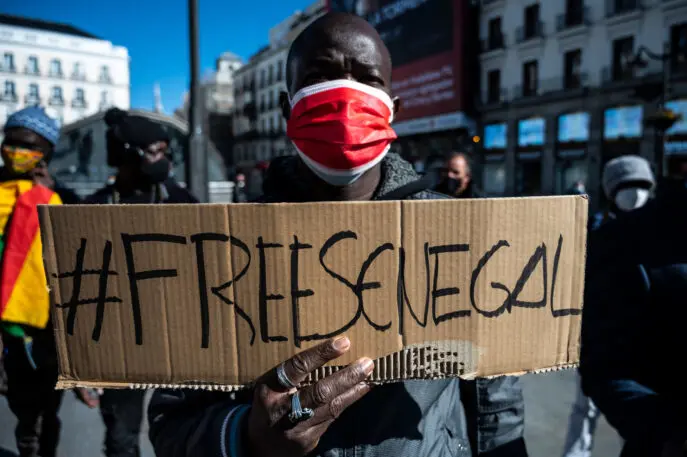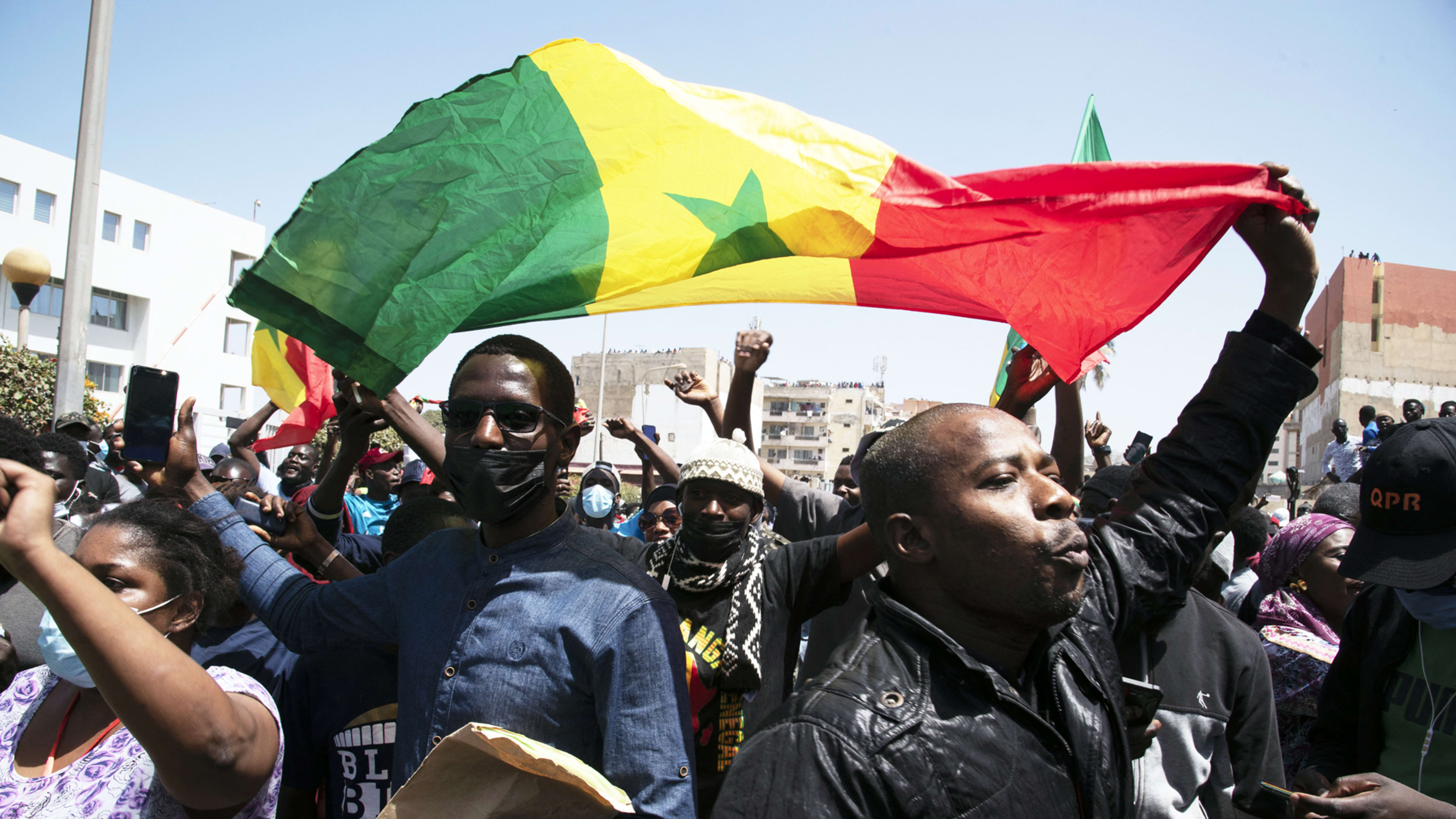On the evening of March 4, 2021, the day following one of the biggest series of protests in Senegal’s modern history, the African nation’s government switched off the internet. Facebook, WhatsApp, Telegram, YouTube, and other social communication channels were restricted. By shutting down one of the most important means of communication in Senegal, the government aimed to suppress the magnitude of the protests against President Macky Sall and his regime.
This practice of restricting the internet and social networking channels isn’t singular to Senegal. Internet shutdown and throttling has been a long-standing practice employed by governments to prevent protests and control information spread, especially in South Asia and Africa.
But in an increasingly digital world, internet access has become a human right, and governments and internet service providers shouldn’t have the ability to shut it down, especially in countries with a fragile democracy. In Senegal, where 70% of the electoral population is below the age of 40, where internet penetration is at 46% and rapidly increasing, and where a sizable part of the electorate is in the diaspora, access to the internet is necessary to uphold democratic values. As a Senegalese technologist in the diaspora, I am inspired by how the country’s young people have leveraged technology to fight for their democracy.
A shaky democracy
While Senegal has been touted as the last standing soldier when it comes to democracy in Africa, the country’s status as a stable democracy is increasingly in doubt.
This series of protests was initially sparked by the arrest of the current opposition leader, Ousmane Sonko, after he was accused of rape. The rape claims are widely considered to be a political move aiming to damage Sonko’s credibility as an opponent to President Macky Sall. What should have been dealt with by the law turned into a political affair, and Sonko had his parliamentary immunity restricted and was accused of additional charges.
The protests, which began on March 3, right before Sonko was arrested, turned deadly on March 4 and afterwards, with police and militias killing 13 people, most of whom were under the age of 25, and wounding several hundred others. More than 500 protesters were arrested for looting and/or for participating in an unauthorized protest. Several Senegalese social activists, such as Guy Marius Sagna, are still in jail for denouncing the government. Television stations SenTV and WalfTV were prevented from reporting on the protests live.
Sonko was not the first opposition leader under Sall’s regime to face this fate. In 2017, Khalifa Sall, then the mayor of Senegal’s capital, Dakar, and Macky Sall’s main political opponent, was tried and imprisoned for embezzling money. Other rivals were either pushed to leave the country or convinced to join the government under conditions that were not disclosed to the public.
Although the tipping point for the protests was Sonko’s arrest, Senegalese youth were already frustrated with Macky Sall’s regime for its manipulation of the constitution for political gains, its unkept promises, and its sustained corruption, combined with the dire living conditions of the Senegalese people. Sall, who was first elected in 2012 and then reelected with a large majority, has been accused of eyeing a third term in office in 2024, which would violate a 2016 referendum to restrict presidential terms to a maximum of two.

Organizing online
The protests took place in the streets but were mainly organized online. Senegalese young people quickly initiated and rallied behind the hashtag #FreeSenegal, which has now garnered more than 3 million tweets and more than 1.6 billion impressions and has been shared across social media, including on Instagram.
A handful of social media posts around the hashtag were also translated into several other languages to reach a broader audience. However, these translations were limited because translation tools are not available in Wolof, Senegal’s main language. As an AI researcher, I believe better language translation technologies for African languages such as Wolof will become crucial in these types of digital movements in the future.
Despite this limitation, the hashtag served as an efficient way to mobilize efforts from the Senegalese on the ground and in the diaspora to raise awareness of the threats to democracy and of ongoing social injustice in Senegal. The hashtag has become the rallying cry for a movement and even inspired the hashtag #FreeHaiti, which local activists have used to raise awareness of the current injustice happening in Haiti.
This is not the first time Senegalese youth have used the internet as a revolutionary tool for democracy. In June 2011, a group of young Senegalese bloggers launched Sunu2012, a platform dedicated to delivering information about the 2012 presidential candidates and their platforms. The successful platform leveraged social media networks such as Facebook and Twitter to deliver election results in real time online for more transparency and was used by Senegalese internet users and several Senegalese media as a reliable resource.
Access and control
The impact of internet-powered youth-led initiatives in Senegal such as Sunu2012 and #FreeSenegal shows the role an unfettered internet can play in providing a way for citizens to express dissent and exercise free speech, both crucial elements of democracy.
The internet is also crucial to Senegal’s economy and its diaspora. For me as a Senegalese in the diaspora whose whole family is living in Senegal, internet-powered tools such as WhatsApp and money-transfer apps have been crucial to connecting with my family and sending money. Senegal’s remittances represented more than 10% of the country’s GDP in 2019. Internet shutdowns therefore constitute as much of an economic threat as they are a democratic threat.
But if the internet is critical to democratic and economic success in Senegal and in Africa in general, then we need to examine who has access to it in the first place. Of Senegal’s population of 17 million, only 46% of the total population have access to the internet, and only 49.9% of those internet users use social media. Increasing internet access is now a priority for Senegal’s democracy and development. This can only be possible if the cost of data is reduced and if there is a competitive market for internet providers. To achieve this, barriers to entry need to be lowered for digital newcomers.
In addition, there is little discussion of net neutrality in Senegal and in Africa in general, despite increasing internet penetration. The conversation around net neutrality is especially crucial for a continent with a population of more than one billion, half of whom will be younger than 25 in 2050.
With internet shutdowns spreading, the question of who should control the internet globally is an open one. In the U.S., lawmakers introduced a bill in October 2020 that would prevent the president from being able to shut down communications networks, including the internet. A similar but pan-African pledge signed by every African country could be a productive step toward protecting the sanctity of the internet so that it stays an enabler of democracy, not a tool for autocratic regimes.
Adji Bousso Dieng is a Senegalese computer scientist and statistician working in the field of artificial intelligence. She is the founder of The Africa I Know, a research scientist at Google AI, and an incoming tenure-track assistant professor of computer science at Princeton University.
Recognize your company's culture of innovation by applying to this year's Best Workplaces for Innovators Awards before the extended deadline, April 12.
